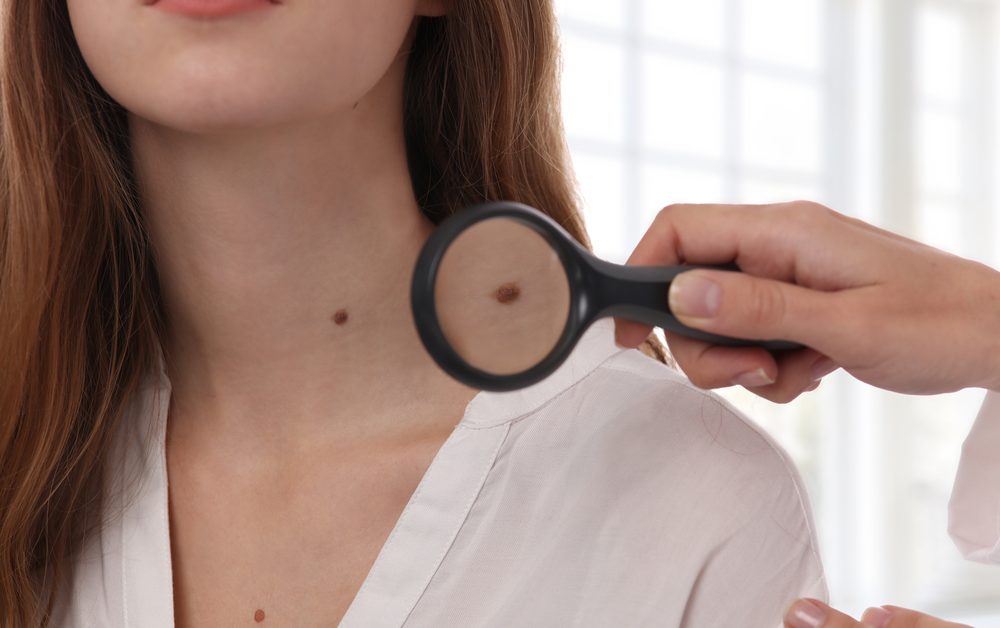Blog
Signs That You Need To See A Dermatologist

The skincare and beauty industry is thriving and most people believe that they are taking good care of their skin and will never need to see a dermatologist.
However, there are many different skin conditions, diseases and illnesses that can arise regardless of how well skin is taken care of. If any of the following signs appear, it may be time to make an appointment to see a dermatologist:
- Moles or beauty spots that change in size, appearance or colour.
- A painful, cystic pimple that won’t seem to disappear.
- Dry, irritated, itchy or a burning skin.
- Rough, scaly or patchy skin especially on the knees, elbows or scalp.
- An increase in hair loss especially if bald patches appear.
- Skin that looks red, hot and flushed for no apparent reason.
- If there is a concern that acne has developed.
- If there is a concern that a melanoma (skin cancer) has developed.
- Any other skin condition that is cause for concern and does not resolve on its own or with the help of OTC (over the counter) medication.
The most common reasons why people choose to consult a dermatologist include:
1. Acne
Acne tops the list as it is one of the most common skin disorders that affects people of all ages, genders and ethnic groups.
Acne is not the same as regular blackheads or pimples and will not simply disappear on their own or when squeezed out. It is, in fact, an infection of the sebaceous gland beneath the skin.
Most often, acne will get worse rather than better without treatment.
Red, inflamed pimple-like sores on the face (or body) may be acne and it is recommended to see a dermatologist as soon as possible for treatment to avoid long term scarring and pitting of the skin.
2. Eczema
Eczema appears as dry, patchy skin that is red, rough, itchy and inflamed. Although the cause of eczema is not known, it is thought that irritants may cause eczema in sensitive skin types.
The condition can affect people of all ages but is particularly common in infants. However, the condition is treatable with a range of different topical creams or lotions.
A dermatologist will most commonly prescribe a corticosteroid cream to treat the condition as well as a soothing balm or salve to prevent scratching at the dry, irritated skin which can aggravate the condition.
3. Moles
Moles, also called beauty spots, can often change in composition as a person ages. This change often results in melanoma or skin cancer.
A mole that changes in size, shape, colour or appearance should be checked by a dermatologist as soon as possible.
In most cases, the dermatologist will remove the mole and send a sample to a lab to check for whether it is benign or cancerous.
If the mole is cancerous, further consultation may be necessary to determine whether the cancer has spread.
Contrary to popular belief, melanoma does not only affect the skin but can spread to organs, glands and the rest of the body. If there is any concern whatsoever that a mole may be cancerous, visit a dermatologist as soon as possible.
4. Unnatural Hair Loss
A dermatologist deals with all areas of the skin including the scalp that supports the hair. There are a variety of different conditions that can result in excessive hair loss or baldness in both men and women.
Male pattern baldness is the most common and quite harmless. However, conditions such as alopecia areata that can result in total hair loss.
A dermatologist should be consulted for any conditions related to the scalp or that result in excessive hair loss, even common dandruff.
An expert dermatologist can accurately diagnose any skin condition and provide the optimal treatment to cure or reduce the symptoms of the condition.
Searching for and finding a trustworthy dermatologist in Melbourne isn’t easy. However, if you need to seek advice from a trusted and experienced dermatologist, look no further than Brighton Dermatology.
We are able to deal with a large range of skin diseases and disorders and help you to restore your health and confidence.
Please call us today for a consultation on (03) 9592 7474 or contact us via our website.

